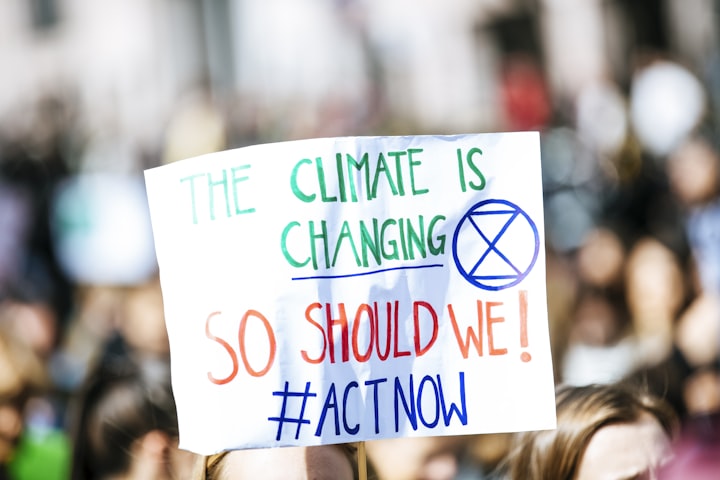Environmental justice
Dive into the emotional experiences of marginalized communities disproportionately affected by climate change.

As the scorching sun beat down on the dilapidated neighborhood of Eastville, the air thick with pollution and the pungent stench of decay, Maria Rodriguez stood on her front porch, her heart heavy with anger and frustration. She had lived in this community all her life, a community where dreams wilted, hope faded, and inequality thrived.
Maria had witnessed firsthand the devastating impact of climate change on her neighborhood. Each year, when heavy rains poured, the streets would flood, transforming the area into a murky swamp. The overflowing sewers spilled their toxic contents, seeping into homes and polluting the already limited water sources.
The community of Eastville was predominantly comprised of low-income families, primarily people of color who had been marginalized for generations. They had no voice, no power to fight against the environmental injustices that ravaged their lives. It was a vicious cycle of poverty, pollution, and powerlessness that seemed impossible to break.
Maria, a fierce and determined woman, had resolved to be the catalyst for change. She had spent countless hours rallying her neighbors, educating them about their rights, and empowering them to demand justice. But the road to progress was fraught with obstacles, and Maria often felt the weight of the world on her shoulders.
One sweltering summer afternoon, Maria attended a town hall meeting where a panel of politicians and city officials droned on about climate change initiatives that were far removed from the realities of her community. Maria's frustration grew with each empty promise and hollow platitude uttered by the suits on stage.
Finally, she couldn't bear it any longer. Rising from her seat, Maria stepped up to the microphone, her voice trembling with suppressed anger.
"You sit there, talking about climate change and the need for sustainable initiatives, but what about us? What about the families in Eastville who suffer every day from the consequences of environmental degradation?" Maria's voice quivered with emotion as tears welled up in her eyes.
She continued, her voice growing stronger with each word. "We have been neglected for far too long. Our children play in contaminated playgrounds, our elderly struggle to breathe polluted air, and we drink water that is tainted with toxins. How can you stand there and ignore our cries for help?"
Maria's words echoed through the room, silencing the panel and stirring a ripple of discomfort among the audience. But she wasn't finished.
"We are not statistics or faceless victims. We are human beings with dreams and aspirations. We deserve the same rights, the same protections as anyone else. It's time for you to acknowledge our existence and work with us to create an equitable and just future."
After a moment of stunned silence, they were hung in the air before thunderous applause erupted. Maria's impassioned plea had struck a chord within everyone present. People from all walks of life stood united, demanding change, demanding justice.
News of Maria's powerful speech spread like wildfire. The once-ignored community of Eastville became a symbol of resilience and determination. Allies poured in, offering support, resources, and expertise to help uplift the neighborhood.
With the backing of a united front, Maria and her neighbors embarked on a mission to create a sustainable, environmentally conscious community. They planted trees, created green spaces, and implemented recycling and waste management programs. They fought for policies that would protect their air, water, and land, ensuring a healthier future for generations to come.
The journey was not without its setbacks. The road was long and arduous, and Maria often found herself weary and disheartened. But the strength and resilience of her community pushed her forward. They had become a family, bound by their shared struggles and their unyielding spirit.
Years passed, and Eastville began to transform. The once-flooded streets became pathways lined with flourishing gardens and vibrant murals. The air cleared, carrying with it the laughter of children playing in clean, safe parks. Maria looked around with tears of joy streaming down her face, overwhelmed by their immense progress.
The fight for environmental justice was far from over, but Maria knew that the power of a community, united by shared experiences and fueled by hope, could move mountains. She had seen the power of determination and the beauty of resilience.
In the end, the emotional journey of Eastville and its people transcended the boundaries of geography and ethnicity. Their story resonated with countless others who had faced similar struggles, igniting a global movement for environmental justice and equality.
Maria's voice, once just a whisper in the wind, had grown into a resounding roar that echoed through the hearts and minds of people everywhere. Through her courage and unwavering spirit, she sparked a revolution that would forever change the world's perception of environmental justice.
About the Creator
Penny Wise
Welcome to my world of storytelling. Join me as we explore the depths of human emotions and embark on transformative journey together. Let my words ignite connections, inspire introspection, and celebrate the beauty of our shared humanity.






Comments
There are no comments for this story
Be the first to respond and start the conversation.